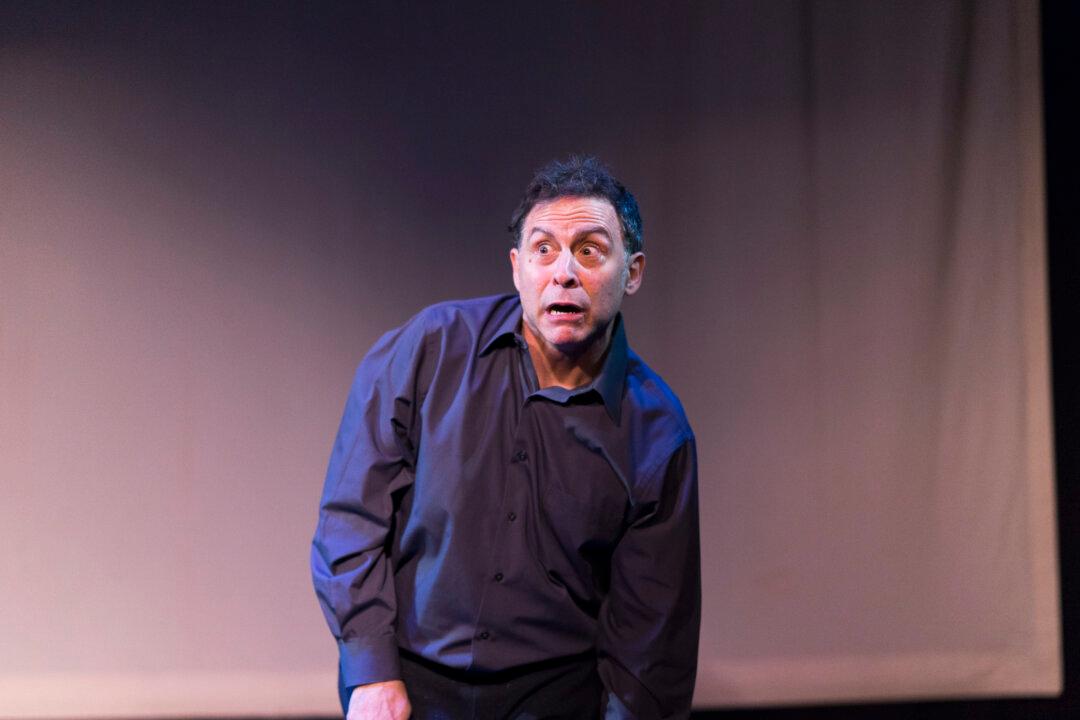NEW YORK—Actor David Deblinger is a creature of showbiz. Like Joan Rivers, he’s very intense. Showbiz creatures crave the spotlight like hardcore alcoholics—they must act. They must sing snatches of songs, they must use accents, they must gesticulate wildly, they must chew the scenery—they must always be “on.” I generally loathe them.
For the first half of “Lucky Penny,” written and performed by Deblinger (directed by Ben Snyder and with music and vocals by Fred Johnson), what immediately came to mind was Woody Allen’s monologue in “Annie Hall,” where an agent demonstrates to Allen’s stand-up comedian character, Alvy Singer, how to be hilarious, and Alvy’s thinking, “Sheesh, this guy’s pathetic; look at him mincing around. Boy he thinks he’s real cute—you want to throw up.” Same deal here. That said ... this review ends well. Keep reading.

David Deblinger in his original play "Lucky Penny." Zachary Zirlin Photography

Mark Jackson
Film Critic
|Updated:
That's the magic of theater. It'll get you thinking about your life in unforeseen ways. It'll give you a gift.




